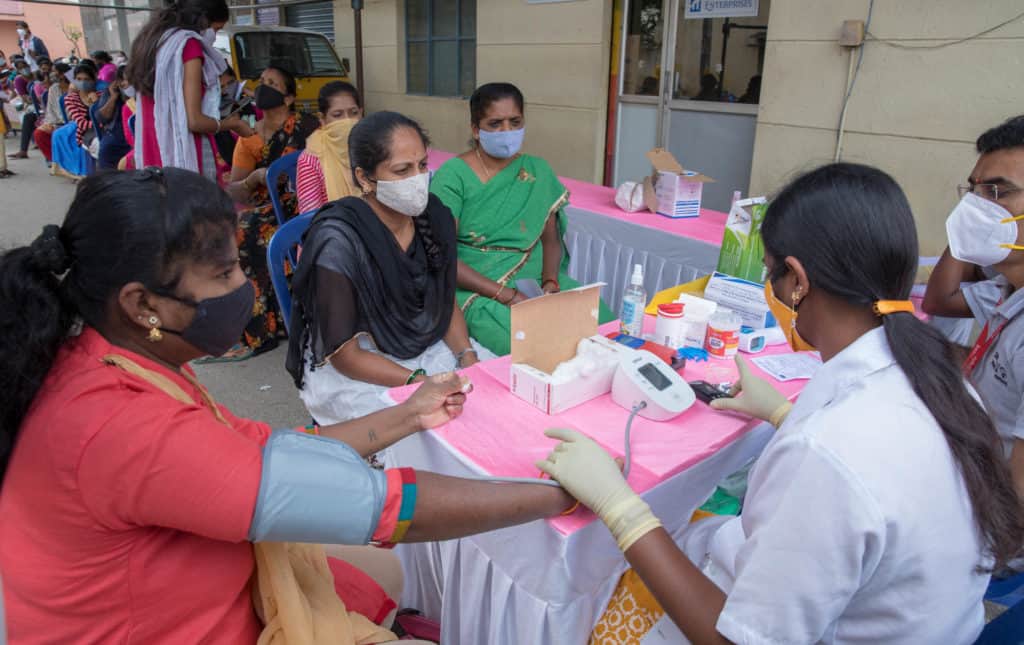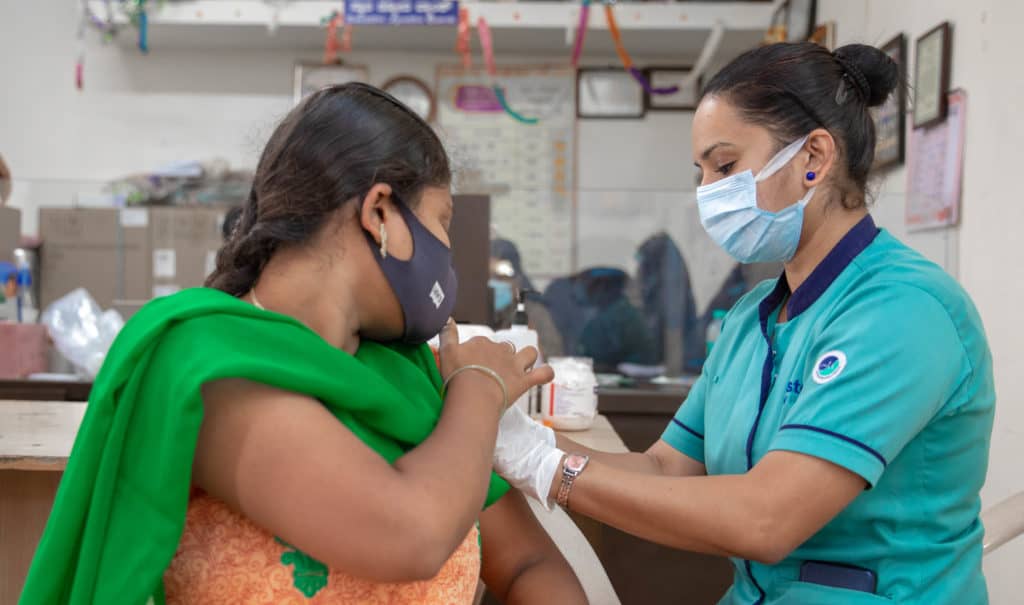The onset of COVID -19 cases and the subsequent lockdown that gripped the nation almost two years ago demonstrated the vast inequalities present in our society. While the pandemic disrupted the lives of every individual, the predicaments of already stigmatised/marginalised communities were aggravated. They have had to survive as financial burdens increased and opportunities for work deteriorated.
India’s nine lakh sex workers, who were out of work, steeped in debt and at risk of contracting the virus, faced the brunt of the pandemic explicitly. The stigma and discrimination during the pandemic added to their existing challenges that included violence, abuse and social isolation. With their livelihoods completely shattered and lacking access to the kind of help that comes with living in mainstream societies, vaccination was not the first thing this community was concerned about.
Read more: COVID aftermath: Bengaluru sex workers suffer starvation, violence
Understanding the problem
At the ‘VaxNow’ initiative of COVIDAction Collab (CAC), we recognised the problems of sex workers, and slowly nudged them towards vaccination. Further, we ensured they had safe access to vaccination.
CAC is a national collective of 346 members/partners, formed in March 2020. Some members, such as SNEHA, Swasti, Taaras Coalition, Pratham and SEEDS, work directly with vulnerable communities like people with disabilities, female sex workers, MSMEs, transgender community and migrant workers. Others like Vihara Innovation Network, Sirti, Fuzhio, UrbanMorph and LabourNet provide human resources, technology, policy and industry association. CAC was put together by Catalyst Management Services which has worked in disaster management scenarios in the past. The idea was that no single organisation can respond effectively given the broad, long-term impacts of the pandemic.
When conducting the vaccination camps, we noticed there were several reasons for vaccine hesitancy among sex workers. This included a lack of confidence in government bodies, acute misinformation on the efficacy of vaccines, and uncertainties around the vaccination process.
Many members of the community already have HIV, complications from sexual reassignment surgery and hormonal therapy, and drug/alcohol addiction. Additionally, as sex workers are daily wage earners, an adverse reaction to the vaccine would mean loss of a day’s pay for them.

Although we had an understanding of the issue, we felt the need to further investigate the reasons for the lack of adoption of vaccination, so as to come up with more robust solutions. This led to strategic partnerships with organisations like ACT Grants, Sattva, Swathi Mahila Sangha (SMS), the BBMP (Bruhat Bengaluru Mahanagara Palike), Government of Karnataka, and partner organisations like Swasti, who work in close proximity with these communities and are significant to our overall programme at CAC.
We first sought to engage with community-based organisations like SMS to understand the scenario at the ground level. SMS is a community-based organisation formed by Women Sex Workers (WSWs) in Bengaluru 15 years ago. They work with a community of nearly 13,000 WSWs in Bengaluru, through a network of 70 outreach workers/community leaders and over 300 peer educators. The peer educators help community members access HIV prevention and support services; and during COVID, they have helped the community access COVID relief services.
Through the organisation, we were able to understand that each member of the WSW community falls under one of the following categories:
- Vaccine-eager but has no access
- Vaccine-indifferent – can be convinced and mobilised
- Hesitant and unwilling – reason for hesitancy needs to be diagnosed, and the person convinced
Addressing vaccine hesitancy
We then partnered with local NGOs to address vaccine hesitancy due to misinformation/lack of information and non-accessibility to camps.
Establishing trust between the community and local organisations is the most vital tool to address vaccine hesitancy. Open dialogue was fostered through the existing network of SMS. The sex worker community’s trust in SMS’s peer educators and outreach workers throughout their years of service, was crucial in addressing any misconception about the vaccine.
By leveraging this network of trust between communities and local organisations, we were able to better drive vaccinations at our camps.
We also procured vaccines from donors such as ACT Grants and the State Health Department to organise mass vaccination camps for the most vulnerable community members like WSWs, transgender persons, factory/domestic/sanitation workers, urban slum dwellers and daily wage earners.
In addition to vaccination, we provided the following services at the camps:
- Awareness on prevention and protection from COVID-19
- Counselling on wellbeing, physical and mental health
- Screening and treatment for non-communicable diseases such as cardiovascular diseases, cancers, chronic respiratory diseases and diabetes
- Distribution of hygiene and protection kits (which include masks, sanitisers, etc.), and ration kits (as needed)

As of November 20th, 1.24 lakh sex workers and their families received vaccines under CAC’s VaxNow initative across seven states. Of them:
- 62% were women sex workers, 2% were transgender persons, and 36% were their family members.
- 51% received the first dose, and 43% received both doses.
Read more: Taking healthcare to Delhi’s red light district
The way forward

CAC has been better able to bridge vaccine hesitancy and vaccinate individuals with the help of pre-existing networks, and also by addressing communities’ concerns on COVID-19 and other ailments. We selected communities that had the highest access barriers, living in overcrowded places and had high chances of contracting COVID. Our strategy and operational framework can be adapted to any geography and context.
We believe the way forward is to adopt an approach whereby, backed by the government, social groups like the CAC are equipped to lead charge by focusing on community-specific approaches to address problems within the community. In the long run, this hyper-targeted approach will be key to helping the nation achieve its vaccination targets while also promoting a sense of connectedness with all stakeholders.